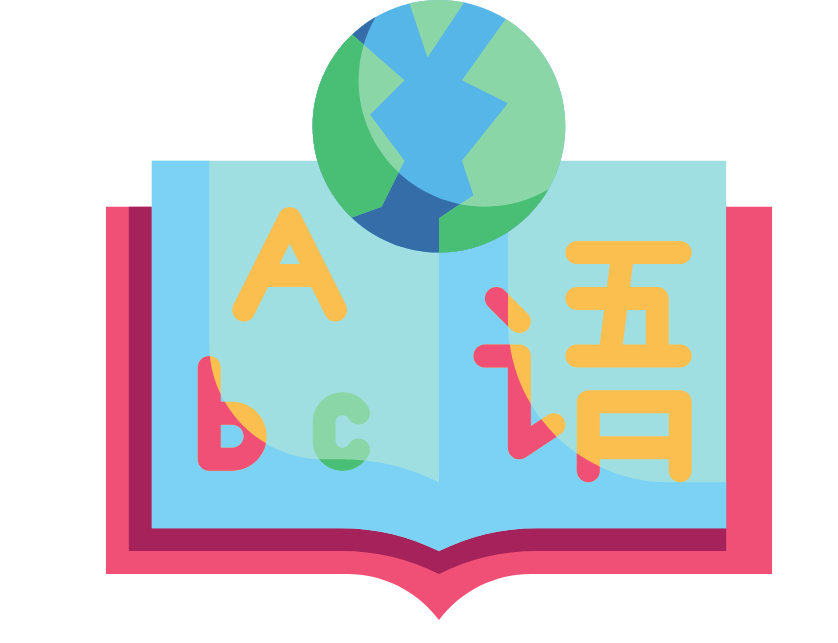We often get asked at our company how many languages we can translate. The answer is more than 25 language combinations. Saying we could translate all languages would be unrealistic and most likely infeasible. But how many languages are there really in the world?
There are around 6000, according to Unesco. But the number is by no means fixed, just like languages themselves, which evolve and change to adapt to new societies and situations in the world. And some languages even die out. It’s difficult then to calculate exactly how many languages there are worldwide. In some territories several languages are spoken, and knowing where one language starts, and another stops, is also tricky. What’s more, at least 43% of the approximate 6,000 languages spoken in the world are in danger of becoming extinct.
While the fact that there are 6,000 languages sounds a lot, 75% of the world’s population can speak with just 20 languages.
If we look at the number of languages for each continent, according to an article in the Washington Post, Asia is the continent with the most languages, some 2300. It’s followed by Africa, with around 2000, America and Oceania, each with 1000 respectively, and finally Europe with some 280.
If we look at languages on a country level, according to the World Atlas, Papua New Guinea is the most linguistically diverse country in the world, with around 840 languages, even though some of them are spoken by very few people, less than 1000 speakers in some cases. Another example of linguistic diversity is Tanzania, where 127 languages are spoken amongst its 52 million habitants. Swahili is the lingua franca of Tanzania, known as Kiswahili in the Swahili language.

Picture by Wanicon via Canva
What are the most spoken languages in the world?
List of languages by millions of native speakers worldwide:
| Ranking | Language | Number of people who speak the language as their first language (L1) | Percentage of world population |
| 1 | Mandarin Chinese | 918 | 11.9% |
| 2 | Spanish | 480 | 5.9% |
| 3 | English | 379 | 4.9% |
| 4 | Hindi | 341 | 4.4% |
But if we look at the list of languages based on the total number of speakers in the world, we get a somewhat different picture:
| Ranking | Language | Number of people who speak the language as their first language (L1) | Number of people who speak the language as their second language (L2) | Total number of speakers |
| 1 | English | 379 million | 978 million | 1.348 million |
| 2 | Mandarin Chinese | 918 million | 1998.7 million | 1.120 million |
| 3 | Hindi | 342 million | 258 million | 600 million |
| 4 | Spanish | 480 million | 72 million | 543 million |
In Europe, linguistic diversity is protected under article 22 of the Charter of Fundamental Rights of the European Union: “The harmonious co-existence of many languages in Europe is a powerful symbol of the European Union’s aspiration to be united in diversity, cornerstones of the European project.”
The European Union is composed of 27 countries, and there are 24 official languages, which include:
- English
- German
- Spanish
- Croatian
- Danish
- Slovakian
- Slovakian
- Estonian
- Finnish
- French
- Greece
- Hungarian
- Italian
- Latvian
- Lithuanian
- Maltese
- Dutch
- Polish
- Portuguese
- Swedish
- Czech
- Bulgarian
- Irish
- Romanian
The importance of multilingualism according to the European Union:
“The EU’s motto ‘united in diversity’ symbolises the essential contribution that linguistic diversity and language learning make to the European project.
Languages unite people, render other countries and their cultures accessible, and strengthen intercultural understanding. Foreign language skills play a vital role in enhancing employability and mobility. Multilingualism also improves the competitiveness of the EU economy.
Poor language skills can cause companies to lose international contracts, as well as hindering the mobility of skills and talent. Yet, too many Europeans still leave school without a working knowledge of a second language. For this reason, the EU has set the improvement of language teaching and learning as a priority.”
In Catalonia we are fortunate to have two official languages, Spanish and Catalan. Most people in Barcelona consider themselves to be completely bilingual.
At LocalizationLab, we’re passionate about languages, intercultural communication, and linguistic and cultural diversity in the world.
If you need help to decide what languages your materials should be translated into, we’d love to help.
By LocalizationLab.
